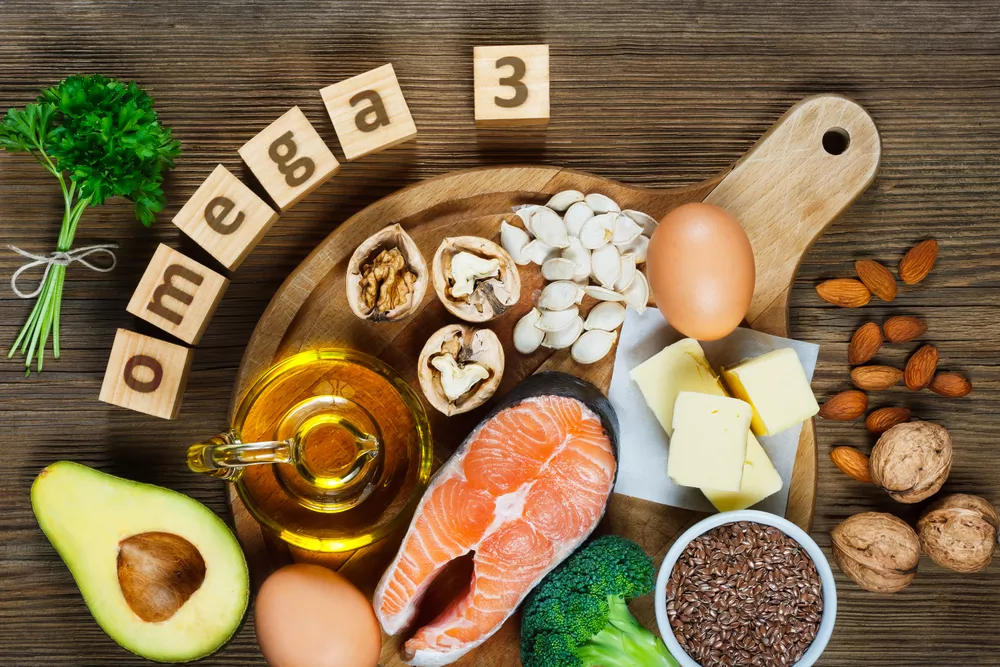Verified on 13/12/2022 by Alexane Flament, Editor
Some fats are called “ essential » for humans because the body cannot synthesize them itself. Among them, omega-3 fatty acids are recognized for their beneficial effects on cardiovascular health.
To consume them, there is no need to resort to food supplements: certain foods contain them in sufficient quantities. Find out which ones.
Rapeseed oil (Canola)

Rapeseed (canola) oil is a source of alpha-linolenic acid (ALA), a short-chain fatty acid from the omega-3 family.
Alpha-linolenic acid cannot be produced by the body: it is called “essential” because it must necessarily be supplied by food.
In the body, short-chain fatty acids can transform into long-chain fatty acids. These are beneficial for cardiovascular health.
But the conversion rate remains low (1 to 3%). This is why it is imperative to consume foods rich in long-chain omega-3.
Rapeseed oil oxidizes very quickly. It should be stored in the refrigerator and consumed quickly once the container is opened. Do not heat rapeseed oil and do not use it if it gives off an unpleasant odor.
The nut

Walnuts have a particularly high content of polyunsaturated fatty acids, more than 70% of their total lipids. Nearly a fifth of these acids are short-chain essential omega-3 fatty acids.
Its proportion of omega-3 to omega-6 is ideal, but it does not contain long-chain omega-3. It is preferable to buy nuts in their shells: the unsaturated fats in nuts sold shelled oxidize more easily.
Nuts are on the Canadian Food Inspection Agency (CFIA) list of major allergens. People with peanut allergies should also refrain from consuming them.
It is best to keep nuts in their shells at temperatures below 10ºC.
Mackerel

Mackerel is an excellent source of long-chain omega-3 (EPA and DHA).
These are the most beneficial for the body. They are known to reduce blood pressure, triglycerides and the formation of blood clots, thus reducing the risk of cardiovascular disease.
Mackerel is one of the fish richest in EPA and DHA. A 100g serving of mackerel provides around 1.2g, which is more than twice the daily recommendation.
People with gout should avoid consuming mackerel, which is very rich in purines. People such as pregnant women, young children and people with weakened immune systems are recommended to avoid consuming raw, smoked or marinated fish.
Hemp oil

Hemp seeds are a unique source of omega-3. Obviously, the food version (Cannabis Sativa) does not contain THC, a highly psychotropic molecule.
Hemp oil contains not only “short chain” omega-3s found in other vegetable oils but also SDA (medium chain). These are assimilated much more easily by the body. It can be found on sale in organic or natural stores at a very high price.
Hemp oil is not intended for cooking because the fatty acids it contains are fragile. Once the container is opened, the oil will keep for about 2 months in the refrigerator.
Chia seeds

THE chia seeds are naturally rich in dietary fiber and “good fats”. They contain 15 to 17% Omega-3 in the form of alpha-linolenic acid (ALA).
They also contain 5 to 8% gamma-linoleic acid (GLA), an Omega-6 that is difficult to synthesize by the body. On the other hand, long-chain omega-3 fatty acids are not part of their composition. They can be eaten as is, ground to incorporate into recipes or sprinkled on dishes.
Refrigerate the ground seeds after opening the package to preserve the Omega-3 they contain. According to the European organization Committee for Novel Foods and Processes, chia has allergenic potential.
Linseed oil

Flaxseed oil contains a large amount of alpha-linolenic acid (ALA), a short-chain omega-3 fatty acid. Practitioners recommend taking one tablespoon per day to reduce the risk of cardiovascular disease.
Flaxseed oil goes rancid very easily. Store it in the refrigerator and consume it quickly once the container is opened. Buy small quantities at a time and choose opaque containers.
Flaxseed has a similar effect and is inexpensive. They are sold in bulk or ground into powder. Do not heat linseed oil and do not use it if it gives off an unpleasant odor.
The shrimp

Just like fatty fish, shrimp contains EPA and DHA, two long-chain polyunsaturated fatty acids from the omega-3 family. The amount of omega-3 present in shrimp varies from species to species.
Thus, analyzes carried out in Quebec show that northern shrimp contain three to five times more EPA and DHA than farmed shrimp imported from Asia. A 75 g serving of Nordic shrimp provides 300 mg of EPA and DHA.
People who have difficulty keeping their cholesterol levels low should consume it in moderation.
Frozen, canned or precooked shrimp can be very high in salt. For people with high blood pressure, it is best to choose fresh, uncooked shrimp.
Sardines

Preserved in virgin olive oil, sardines are a first choice dish, sought after by gourmets. Its high fat content makes it one of the best sources of long-chain omega-3.
Like most fatty fish, it contains EPA and DHA. A 100 g serving of sardines provides approximately 1 g. To fully benefit from the virtues attributed to omega-3 fatty acids, avoid cooking fish for too long.
A fresh sardine can be recognized by its firm and shiny appearance. Its flesh is at its tastiest in summer.
Preferably consume it the same day of purchase.
The lamb’s lettuce

Naturally rich in omega-3, lamb’s lettuce is among the best sources of ALA. It contains 200 to 360 mg of short-chain omega-3 per 100g serving.
This fragile little plant must be seasoned when serving. Prefer a mild oil (walnut for example) and use very little vinegar or lemon. Other green vegetables like cabbage or lettuce also contain omega-3.
Rinse the lamb’s lettuce well under cold water but avoid prolonged baths which risk damaging it.
Consume the lamb’s lettuce the same day of purchase or put it in the vegetable drawer of the refrigerator where it will keep for 3 or 4 days.
Egg enriched with omega-3

Omega-3 eggs are identical to regular eggs in terms of fat, protein and nutrients. cholesterol. Only the omega-3 content changes. These eggs are made naturally: flax seeds are added to the hen’s food ration.
The hen will transform part of the short-chain omega-3, contained in flax seeds, into long-chain omega-3 (which is found in abundance in fatty fish). Eggs, along with milk and shellfish, are one of the main causes of food allergies. It is strongly recommended not to eat raw eggs for reasons of toxicity.
98% Readers found this article helpful And you ?
Was this article useful to you?










